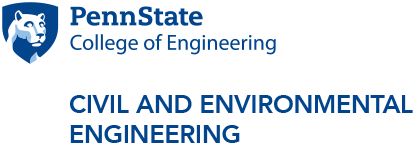Water System Justice
Abstract
Centered around the theme of water and justice, the first talk describes practices to achieve more inclusive river research science. The talk will begin with a local example describing a collaboration with early career scientist from idea to analysis and manuscript submission of a project that examined long-term changes in dissolved organic matter composition in rivers undergoing land use changes (mostly urbanization) and increases in precipitation. The talk will then describe polices and practices implemented in scholarly publications through pilots at JGR Biogeosciences as related to equity, inclusion, and transparency. I will introduce the Global Code of Conduct for Equitable Research Partnerships and best practices to avoid parachute science, using published examples from water related global research. Finally, I will describe a toolkit that can be used to foster equitable participation, diverse perspectives, and inclusive practices in scholarly publications.
The second talk: Our blue, green and white water are all severely compromised. Our hydrological cycle is compromised. Climate change exacerbates the stressed water system. This affects human health and wellbeing as well as our economy. Understanding that water is scarce and must be used and reused with care and not polluted is critical. One way to do this is to think about water system justice, a systemic approach to understanding water justice. Water System Justice builds on Earth System Justice and is ideal (not conservative), local to global iterative, aims at recognitional and epistemic justice. It combines interspecies justice, intergenerational and intragenerational justice. All this feeds into procedural and substantive justice. When operationalized, we look at ends – boundaries and standards; meeting minimum needs; and means- how do we address the driving forces of water problems, how do use liability to enforce action, and how do we redistribute the remaining resources and responsibilities. In this story we also focus on the discrepancy between the flowing nature of water and the problem of over-allocation of property rights to it, and quasi property rights in permits, concessions and contracts and how this challenges the adaptive and just governance of water.
Bios
Dr. Marguerite (Maggie) Xenopoulos is Professor and Canada Research Chair in Global Change of Freshwater Ecosystems at Trent University, in Canada, as well as Editor-in-Chief of the Journal of Geophysical Research: Biogeosciences. Her research expertise centers on understanding how humans and their activities are affecting freshwater ecosystems at both local and global scales. Some of her current projects include the effects of urban and agricultural land use on the biogeochemistry of aquatic systems, and the effects of extreme climate events (e.g., flooding) and hydrological variability in freshwater. Her research program is characterized by an innovative application of interdisciplinary techniques, cross-disciplinary collaborations and partnerships, and adept management of large and diverse research teams. Xenopoulos is one of the first to implement action plans toward more equitable, diverse, and inclusive scientific publication environments with more transparent editorial policies and practices. She has received several awards including a University Faculty Award from Canada’s Natural Sciences and Engineering Research Council (NSERC), an Early Researcher Award from the province of Ontario, she is a Sustaining Fellow for the Association for the Sciences of Limnology and Oceanography, and she shared the Zayed Prize for the Environment for her involvement with the United Nation’s Millennium Assessment. More recently she obtained the William Kaula Award for her exceptional efforts on behalf of American Geophysical Union’s publications program.
Dr. Joyeeta Gupta is Distinguished Professor on Climate Justice, Sustainability and Global Constitutionalism. She is also professor of Environment and Development in the Global South at the Faculty of Social and Behavioural Sciences of the University of Amsterdam (UVA) and IHE Delft Institute for Water Education. Previously, she led the Governance and Inclusive Development group and the Centre for Sustainable Development Studies (UVA), and was professor on Climate Change Policy and Law at the Institute for Environmental Studies at the Vrije Universiteit in Amsterdam. She won the highest academic recognition in the Netherlands – the Spinoza prize in 2023 (1.5 M €). Gupta has a European Research Council Advanced Grant of €2.5 M for 2021-2026. This project studies the role of big investors in leaving fossil fuels underground and the North South implications of doing so. As Distinguished Professor and founding co-convenor of the University’s Centre for Sustainable Development Studies, she helps promote sustainability and climate justice issues in the university. She was lead author in the Intergovernmental Panel on Climate Change (1998-2014) (which won the 2007 Nobel Peace Prize with Al Gore) and the Millennium Ecosystem Assessment which won the Zayed Second Prize. Her books include The Climate Change Convention and Developing Countries - From Conflict to Consensus? (1997, Kluwer Academic Publishers), On behalf of my Delegation (2000, also in French and Spanish, and a second edition in 2023 also in French and Spanish), Our Simmering Planet: What to do About Global Warming (2001, Zed Publishers; translated into Korean), and the ‘History of Global Climate Governance’ (2014: Cambridge University Press) which won the Atmospheric Science Librarians International (ASLI) Choice Award in 2015 in its history category. She has co-edited 16 books and 14 Special Issues on climate change, water, forest governance and development cooperation.
Event Contact: Li Li



